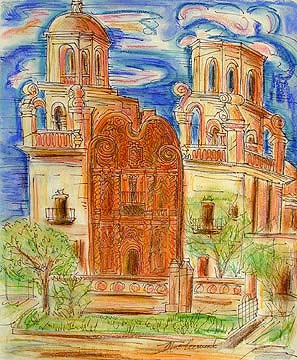
Chibas Speaks
by Steve Almond
(for Eduardo Chibas 1907-1951)
August, 1951. In Havana, in a studio the width of his arms, Chibas speaks. His voice swells with heroism. Clustered around wooden radios the shape of cathedral doors, listeners reach to adjust the volume.
Chibas says: Batista is a thug, the university has become a refuge for murderers, Cuba, with her beautiful girdle of mountains, her sea bass and garlic, Cuba starves. In her elegant buildings, American gangsters feast on steaks and shoot disease into our women. Roulette wheels spin and the Arawak die. Father Varela, with his elegant proofs, dies. Jose Marti dies. His victorious love and turbulent appetites, dead; moral progress fails, gives way to tailfins and murder. All that remains of history is the gesture.
Chibas speaks and thinks not of the words (they are always the same) but of his father. When Chibas was a boy, his father built him a toy bridge from slats of wood. Chibas smoothed his fingers along the wood for hours, pretended to march off to work with his father, a little man in a little coat and hat.
Where is that bridge today? He wonders this even as he speaks to the poor and the hopeful of Cuba, as he laments what the island has bec
ome. There is no goodness left in this place. His father told him this.
The time has come to face the truth, Chribas says, to wake ourselves from centuries of slumber.
But something is happening. Something is happening to Chibas as he speaks; a slice of mango is falling into his mouth; like a second tongue, only sweeter. The fingers of his first lover are grazing his stomach, the glorious stink of the melacon fills the hazy studio, his father’s lemony cologne, applied, with a gentle dab of the thumb, to the back of his neck. These are the minutes he wishes were a thousand years.
He has to remind himself: this is really happening. This speech, these words, the plan behind them. He has to remind himself: duty.
The address is over. In his trouser pocket, the pistol is dense and cold. What is death but the end of a bridge that connects us to childhood? What is goodness but a kind of awful bravery? Chibas thinks: Forgive me father. He alone knows what comes next.
Steve Almond is the author of the story collection My Life in Heavy Metal, as well as a nonfiction book about candy bars, forthcoming from Algonquin Books. His fiction has appeared in Tin House, Playboy, Other Voices, The Mid-American Review, Nerve, and many other magazines. “Chibas Speaks” originally appeared in Story Quarterly. Steve lives in Somerville, Massachusetts and teaches at Boston College.
Manhattan-based artist Matt Cervenka studied at the School of Visual Arts and S.U.N.Y. at Farmingdale. Extensive travels in the Southwest, Mexico and Europe have provided inspiration, and Matt has incorporated their cultures in his work. Presently, Matt enjoys working with gouache, pen and ink, acrylic, and mixed media.Austrian Television’s Tema recently aired an interview with Matt, featuring his animal portraits. See Matt’s New York Cityscapes at Portable Muse.